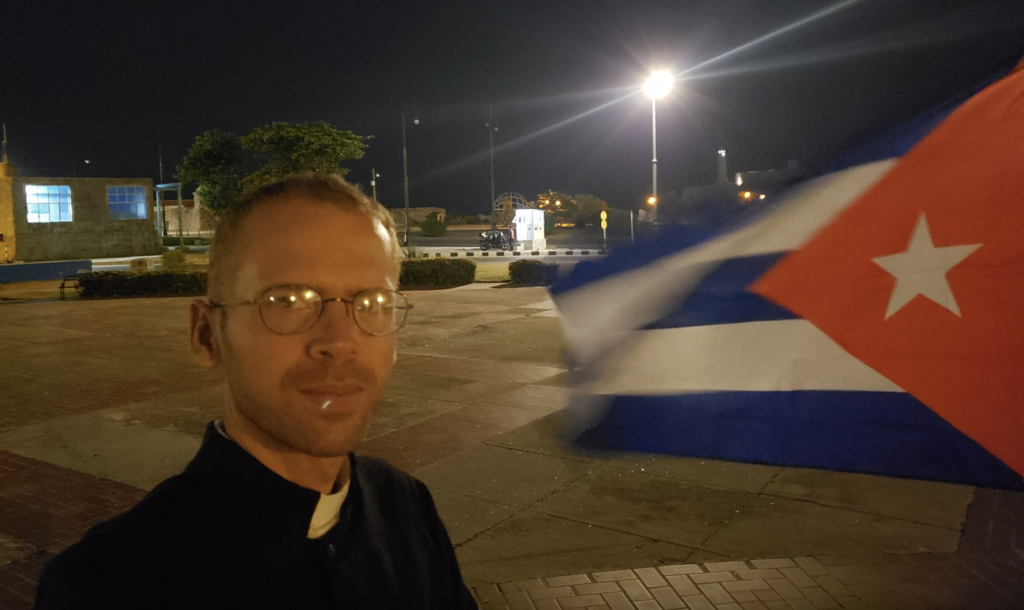State Security summoned priest Kenny Fernández for his call for peace in Venezuela

14ymedio, Havana, 12 August 2024 — The call to pray for peace in Venezuela made by Cuban priest Kenny Fernández Delgado on August 2nd set State Security in motion within a few hours. This weekend, seven days after an official summoned him to the office of the Directorate of Identification, Immigration and Foreigners at 17 and K, in the municipality of Plaza de la Revolución (Havana), the priest revealed that it was a maneuver by State Security to intimidate him.
As reported by Fernández in a Facebook post, the official summons for 10 a.m. – “at the same time as the prayer meeting, to avoid my participation,” he says – was followed by a call from a lieutenant colonel who insisted that there would be “consequences” if he did not appear at the office.
According to Fernández – the parish priest of the church of San Antonio de Padua, in Arroyo Naranjo – he has owned a house for years that he rents to Cubans and, although he does not manage it, he is listed as the owner, which served as a pretext for State Security to question him. “According to the two lieutenant colonels who spoke with me, it is only because of the remote possibility that I might ever decide to rent the apartment to a foreigner that the Immigration and Foreigners Department has the power to summon me as many times as it wants, even with less than 24 hours notice and at least once every six months, and without the need to present an official summons document,” he explains.
Fernandez insisted that he was not planning to rent to any tourists and from there the conversation took another direction
Fernández said that he was not planning to rent to any tourists, and from there the conversation took a different direction. “The ‘friendly policeman’ began to ask me many questions in the style of the State Security colleagues about my publications on social networks, as if someone with the possibility of renting to foreigners was prohibited from using their freedom of expression on social networks,” he summarizes.
The real reason behind the meeting, Fernández emphasizes, was to i


